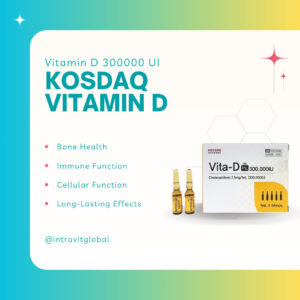Everything to Know About Micronutrients and Where Can You Get Them?
Table of Contents

Introduction
Micronutrients are often overshadowed by macronutrients like carbs, fats, and proteins, but they play a critical role in maintaining our health. These are the vitamins and minerals your body needs in small amounts, yet they have a significant impact on everything from your immune system to your skin’s glow. So, what exactly are micronutrients, and why are they so important?
Types of Micronutrients
Micronutrients are classified into two major categories: vitamins and minerals. Each serves distinct functions in the body, and both are essential for our survival. Let’s dive deeper into these categories.
Vitamins
Vitamins are organic compounds that our bodies cannot synthesize (except for vitamin D), so we must obtain them from food. They are further divided into two groups:
Water-Soluble Vitamins
Water-soluble vitamins dissolve in water and are not stored in the body for long, meaning you need a continuous supply through your diet. This group includes:
- Vitamin C (important for immune function and skin health)
- B Vitamins (essential for energy metabolism and brain health)
Fat-Soluble Vitamins
Fat-soluble vitamins dissolve in fat and are stored in body tissues. These include:
- Vitamin A (supports vision and immune function)
- Vitamin D (aids in calcium absorption and bone health)
- Vitamin E (acts as an antioxidant)
- Vitamin K (helps with blood clotting)
Minerals
Minerals are inorganic elements that also play key roles in the body. They are categorized into:
Major Minerals
These are needed in larger amounts. Some key major minerals include:
- Calcium (vital for bone health)
- Potassium (regulates fluid balance)
- Magnesium (involved in over 300 enzymatic reactions)
Trace Minerals
These are required in much smaller amounts but are equally important. Key trace minerals include:
- Iron (crucial for oxygen transport in the blood)
- Zinc (supports the immune system)
- Selenium (an antioxidant that helps protect cells from damage)
The Role of Micronutrients in the Body
Micronutrients and Metabolism
Micronutrients act as co-factors in enzyme reactions that help convert food into energy. Without them, your metabolism would slow down, and fatigue could set in.
Supporting Immune Function
Both vitamins and minerals are integral to immune function. For instance, vitamin C boosts white blood cells, while zinc helps combat viruses.
Promoting Bone Health
Vitamins D and K, along with calcium and magnesium, ensure that your bones remain strong and healthy, reducing the risk of osteoporosis.
Ensuring Proper Brain Function
B vitamins, especially B12 and folate, support brain health by preventing cognitive decline and promoting nerve function.
Water-Soluble Vitamins: What They Are and Where to Find Them
Water-soluble vitamins need to be consumed regularly, as they are not stored in the body.
- Vitamin C: Found in citrus fruits like oranges, strawberries, and bell peppers.
- B Vitamins: Present in whole grains, meats, eggs, legumes, and leafy greens.
Fat-Soluble Vitamins: What They Are and Where to Find Them
Fat-soluble vitamins, unlike water-soluble ones, can be stored in the liver and fatty tissues.
- Vitamin A: Found in carrots, sweet potatoes, and liver.
- Vitamin D: Found in fatty fish, fortified dairy products, and produced by the skin when exposed to sunlight.
- Vitamin E: Present in nuts, seeds, and spinach.
- Vitamin K: Found in leafy greens like kale and spinach.
Major Minerals: Essential for Your Health
- Calcium: Found in dairy products, fortified plant-based milks, and leafy greens.
- Potassium: Abundant in bananas, potatoes, and avocados.
- Magnesium: Found in nuts, seeds, and whole grains.
Trace Minerals: The Small but Mighty Nutrients
- Iron: Found in red meat, lentils, and spinach.
- Zinc: Present in meat, shellfish, and seeds.
- Selenium: Found in Brazil nuts, seafood, and eggs.
How Micronutrient Deficiency Affects the Body
A lack of essential micronutrients can lead to various health problems:
Symptoms of Vitamin Deficiency
- Vitamin C deficiency can cause scurvy, leading to bleeding gums and fatigue.
- Vitamin D deficiency is linked to bone diseases like rickets.
Symptoms of Mineral Deficiency
- Iron deficiency leads to anemia, resulting in fatigue and weakness.
- Calcium deficiency can cause brittle bones and muscle cramps.
How to Ensure Adequate Micronutrient Intake
The best way to ensure you’re getting enough micronutrients is through a balanced diet rich in fruits, vegetables, whole grains, and lean proteins.
- Fortified Foods: Many cereals and dairy products are fortified with essential vitamins and minerals.
- Supplements: If you’re unable to get enough from food, supplements can fill the gap—but always consult a healthcare professional before starting.
Factors Affecting Micronutrient Absorption
- Age: As you age, nutrient absorption declines, particularly with calcium and vitamin B12.
- Gut Health: A healthy gut microbiome is crucial for absorbing nutrients effectively.
Special Considerations for Different Life Stages
Micronutrients for Children
Children need more iron and calcium to support growth and development.
Micronutrients During Pregnancy
Pregnant women require extra folate, iron, and calcium for fetal development.
Micronutrients for the Elderly
Older adults need more vitamin D, B12, and calcium to maintain bone density and prevent cognitive decline.
Micronutrients for Athletes and Active Individuals
Athletes require a higher intake of certain micronutrients to fuel performance and aid in recovery. Electrolytes like sodium and potassium are key for maintaining hydration.
The Dangers of Excessive Micronutrient Intake
While deficiencies can be harmful, overconsumption can also pose risks:
- Vitamin A toxicity can lead to liver damage.
- Excessive iron can cause gastrointestinal issues and even organ damage.
How to Create a Micronutrient-Rich Meal Plan
To create a balanced, micronutrient-rich meal plan, aim for variety. For example:
- Breakfast: Oatmeal topped with berries (Vitamin C, B vitamins) and almonds (Vitamin E).
- Lunch: A spinach salad with grilled chicken (Iron, Vitamin K) and avocado (Potassium).
- Dinner: Grilled salmon (Vitamin D, Omega-3s) with a side of sweet potatoes (Vitamin A).
Conclusion
Micronutrients may be required in small amounts, but they are essential to our overall health. Whether you’re looking to boost your energy, improve immunity, or protect your bones, ensuring you get enough vitamins and minerals is crucial. By incorporating a variety of whole, nutrient-dense foods into your diet, you can easily meet your micronutrient needs.
FAQs
What is the difference between macronutrients and micronutrients? Macronutrients (carbs, proteins, fats) provide energy, while micronutrients (vitamins and minerals) support various bodily functions.
Can I get all the micronutrients I need from supplements? While supplements can help, it’s best to get your micronutrients from food for better absorption and overall health benefits.
How can I tell if I have a micronutrient deficiency? Symptoms like fatigue, muscle weakness, or frequent illnesses could indicate a deficiency. A blood test can confirm it.
Are there any risks in taking high doses of micronutrient supplements? Yes, taking too much can lead to toxicity. It’s essential to follow recommended dosages.
What are the best plant-based sources of micronutrients? Leafy greens, legumes, nuts, seeds, and whole grains are excellent plant-based sources.
-
Vitamin Drips
Glutanex Glutathione 1200mg IV Drip for Antiaging, Melanin Suppression, Antioxidant Skin Brightness Benefits
£20.00 – £120.00 Select options This product has multiple variants. The options may be chosen on the product pageRated 0 out of 5 -
Vitamin Drips
Asconex Vitamin C (Ascorbic Acid) IV Drip for Antiaging, Melanin Suppression, Antioxidant and Skin Brightness Benefits
£10.00 – £70.00 Select options This product has multiple variants. The options may be chosen on the product pageRated 0 out of 5 -
Vitamin Drips
Kosdaq Vitamin D 300000 IU Cholecalciferol per vial box of 10 ampoules
£20.00 – £140.00 Select options This product has multiple variants. The options may be chosen on the product pageRated 0 out of 5
Checkout our Facebook Page and leave your review about our Health Care Products.






